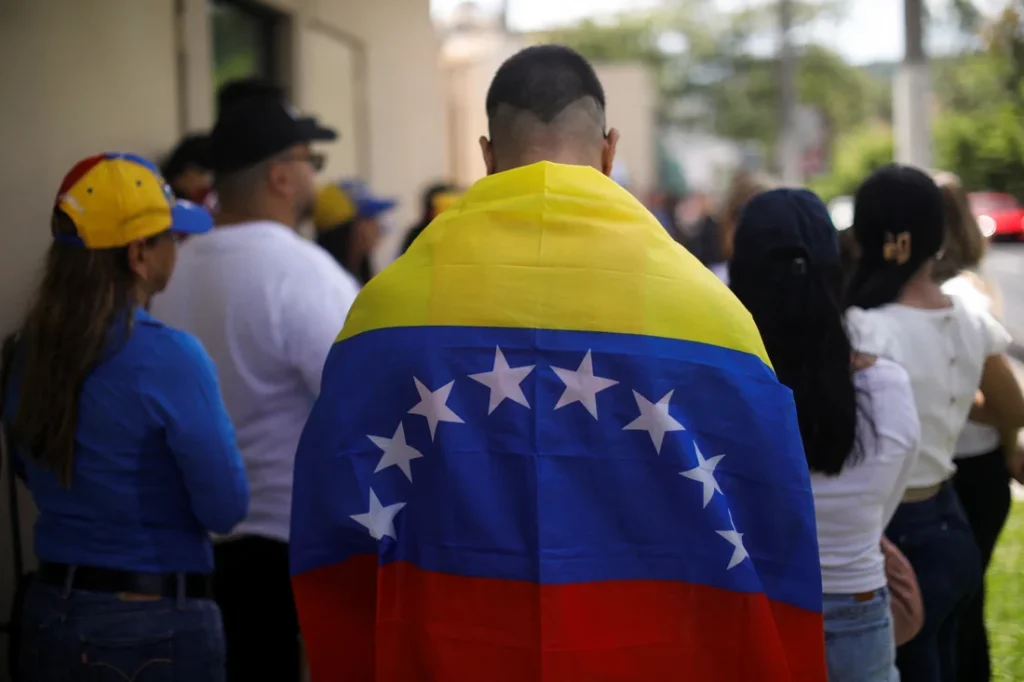Stores were closed, and buses were not running across much of Venezuela on Wednesday due to tensions over a disputed presidential election and rumors of opposition arrests, which kept many people at home.
Socialist President Nicolas Maduro, who has ruled since 2013, was declared the winner of the weekend vote by the electoral council. However, the opposition claims its tally of about 90% of votes shows their candidate, Edmundo Gonzalez, received more than double the support attracted by Maduro.
The U.S.-based Carter Center, which observed the vote, stated late on Tuesday that the election “cannot be considered democratic.” They pointed out flaws throughout the process and criticized the electoral authority’s failure to publish detailed results as a “serious breach.”
On Wednesday, Maduro presented a writ to Venezuela’s top court to “activate an electoral dispute,” asserting that his party, the United Socialist Party of Venezuela, was ready to present all the electoral tallies in their possession.
The United States, Brazil, Chile, and other countries have urged the electoral authority—accused by the opposition of being biased toward Maduro—to publish a complete breakdown of the results. White House national security spokesperson John Kirby said, “Our patience and that of the international community is running out,” urging the Venezuelan authorities to release the full detailed data on the election.
The dispute has sparked widespread protests, which Maduro and his government have denounced as an attempted coup. Gonzalez has reported that 11 protesters have died, and Maduro has indicated that Gonzalez and another opposition figure, Maria Corina Machado, should be held accountable for alleged crimes of the protesters.
Jorge Rodriguez, the head of Congress for Maduro’s ruling socialists, called for the arrest of both opposition leaders, stating that the “bosses of the protesters should go to prison.”
The government has also reported two deaths among security forces and has encouraged citizens to report crimes related to what it calls “fascist activities” via an app.
Opposition fears of police arrests for Gonzalez and Machado grew on Wednesday, with Machado alerting the world on social media about a potential “cruel and repressive escalation by the regime.”
Attorney General Tarek Saab reported 162 arrests and 77 injuries among public officials during the protests. Opposition members seeking asylum at the Argentine ambassador’s residence in Caracas reported police presence outside the building and a cut in electricity.
Brazil has urged Maduro to respect the boundaries of the Argentine embassy in Caracas, and opposition party Voluntad Popular announced the detention of its national coordinator Freddy Superlano on Tuesday. Ricardo Estevez, a senior official with Machado’s party Vente Venezuela, was also reported arrested.
In Caracas, shops remained open, although lines were long, some products were in short supply, and there was an increased military presence around the presidential palace. Public transport was reduced, and many stores planned to shut early, with bus drivers in several cities refusing to work out of fear.
State oil company PDVSA stated that gas stations nationwide would remain open, though long lines were reported. An anxious 85-year-old resident, America Guerrero, expressed her frustration at the elevated prices and lack of transportation options.
Since Sunday, there have been reports of clashes between security forces and opposition protesters, along with attacks on protesters by ruling party-allied motorcycle riders known as collectives. Maduro supporters maintained that the election result was decided and took part in a march on Tuesday.
Past waves of anti-government protests in 2014, 2017, and 2019 have led to hundreds of deaths but failed to remove Maduro from power. Opposition sources indicated a focus on pressuring the government to release all vote tallies. Machado thanked election witnesses and those who uploaded their tallies to the opposition’s website, expressing optimism about the victory.
Potential opposition pathways to power include a negotiated solution or increased foreign pressure on the government through ongoing protests.

